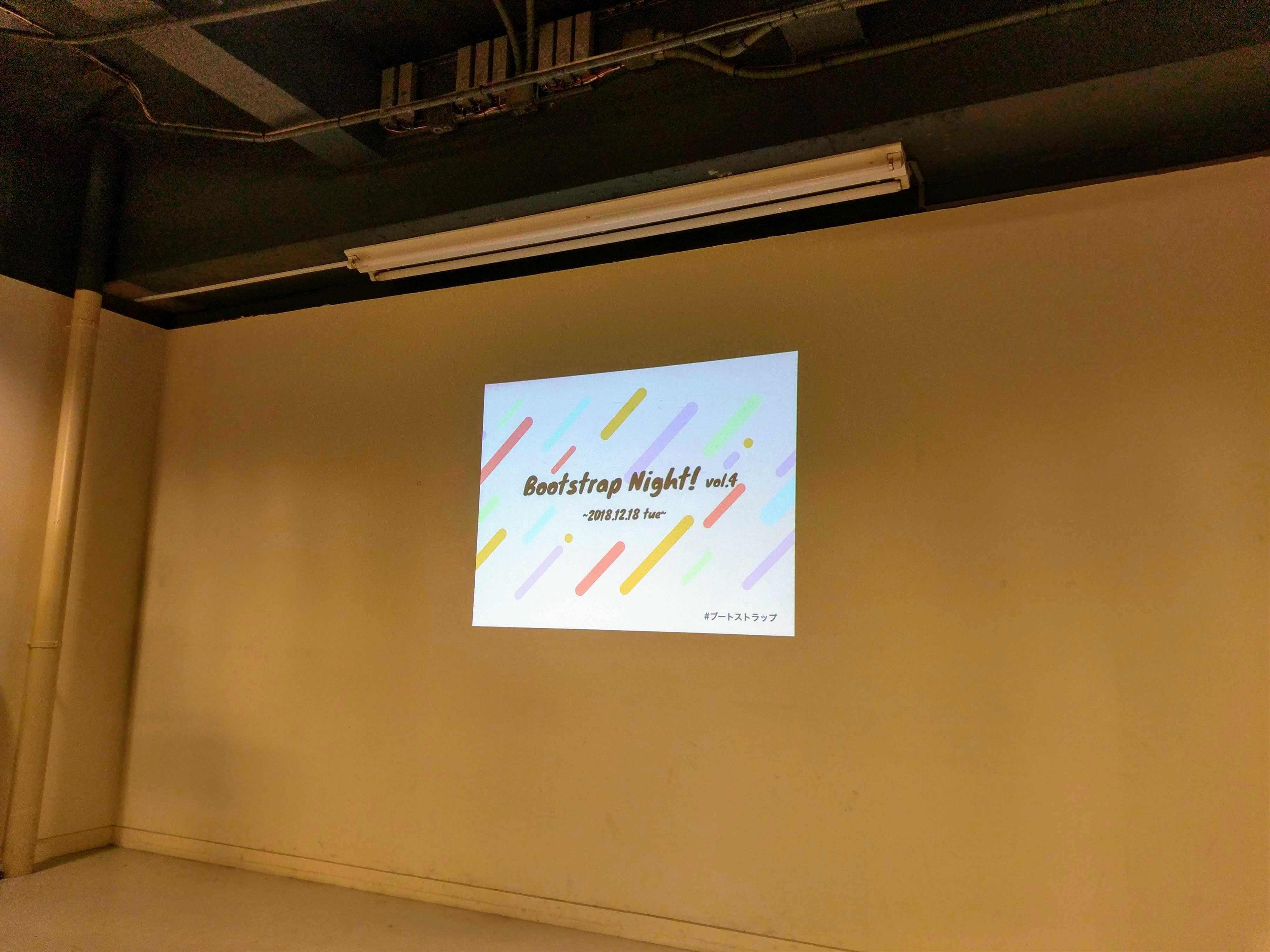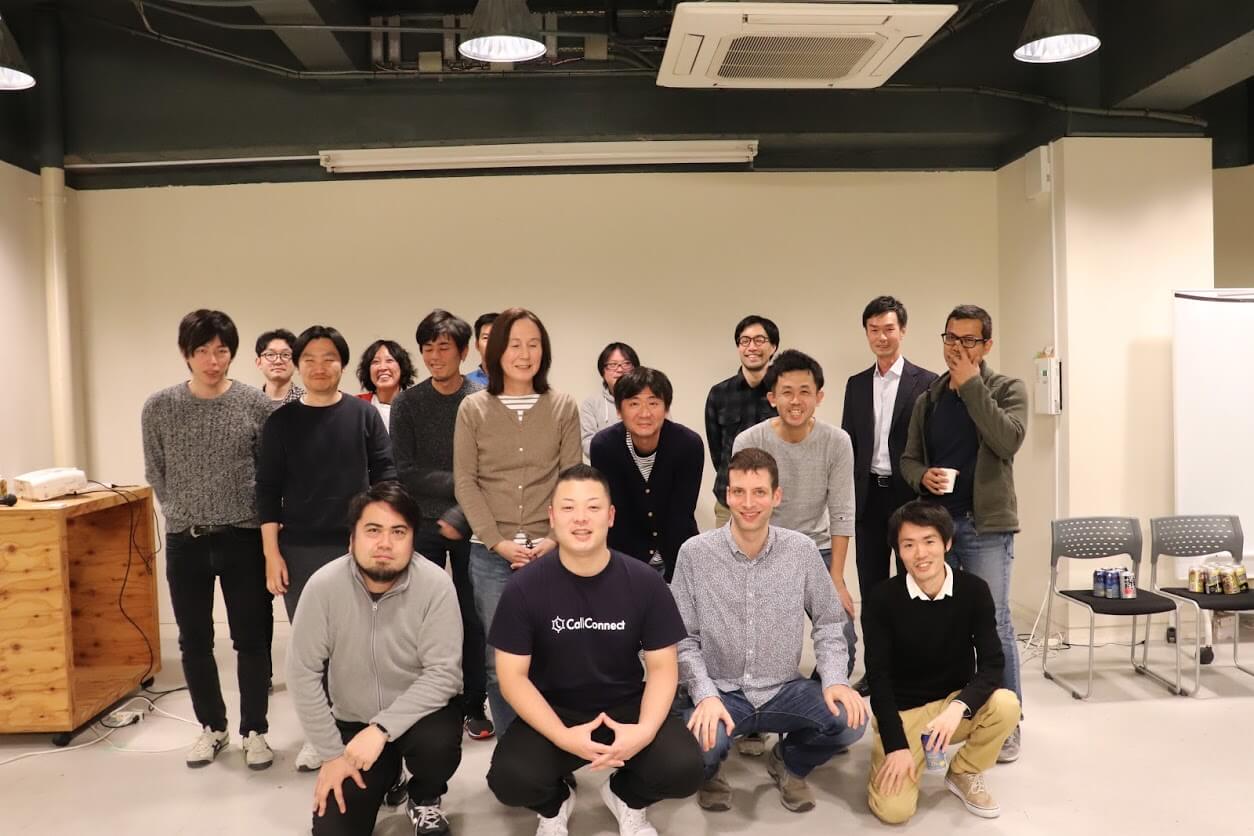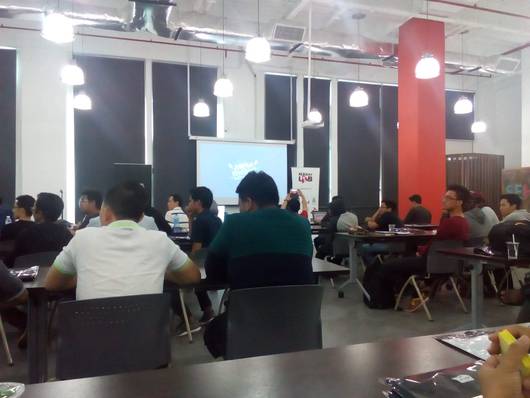It's been a full 12 years since I started a business with Bootstrap in February 2007. I knew no one else started their business bootstrapping at the time, especially in the tech industry. The word of "bootstrap" didn't mean "startup" at that time neither, but more of a way to start up your build of Linux. It had no relation with businesses nor startups.
Within the past 3 years, the tech industry has changed where nearly everyone talks about aiming to be a unicorn or raising millions of capital. It has come to a point that it has become a norm that if you're starting up in tech, "you'll need to raise millions" of VC money. I wanted everyone to know that there is a possibility to have an alternative way to startups and a lifestyle that doesn't involve VC money.
Taking this into consideration, I have been looking forward to attending the Bootstrap Night vol. 4 held on December 18 for the first time.

Acquiring 1,000 paid licenses with a 3-man team
The meetup was started with the presentation by Mr. Omata, CEO of selfree llc..
Why in the first place did they bootstrap? Well, in the event you raised money, it will pressure you for hockey stick growth. Without that pressure, you can take full control of the business and focus without wavering. In short, you grow your business by operating at your own pace with minimum risk. Some of the steps they took:
- They didn't accept any 3rd party development work to concentrate on the product
- They saved funds prior to starting the business as preparation
- They lived on their saving for the duration of the initial development and release
- They resided with their parents with the cost of about JPY 150,000 a month and also used spare time for part-time work
- They only took their first salary 1 and half years after the initial release
Mr. Omata says that there are no shortcuts to getting those 1000 contracts: It was all hard work, sweat. and tears.
- All the co-founders kept sending 50 emails a day for the first 3 months after release
- They made great a effort on customer support, customer success and building use cases
- Organized user meetups
He then talked about his consideration of product development and general business:
- Develop for more improvement than additional functions
- Solve an issue quickest and simplest than any others
- No increasing extra job, no unnecessary additional members
- Get enough rest
Listening to all of these, it's pretty clear that the ingredients for a successful bootstrapped business (or any business for that matter) are still patience and effort, right?
How to set up a programming school
The next speaker was Mr. Komagata of the Fjord LLC. Their main businesses are building websites and developing games for clients, but they are currently operating programming school as well.
He talked about the business hardships of the model that they took: Students started to learn as an intern and proceeded to study while they worked, and that changed to a model where the graduates of their programming school are introduced to open positions in corporations.
Initially, they took everyone that came as interns without taking tuition fees, and the interns would learn programming while they helped on the company tasks. This changed as they gradually switched to the current model where they placed the students into corporations, who supported the training fees for the interns.
In summary we learned that programming school operation is not an easy thing to do, in the end. Yes, I would agree too.
Doorkeeper - the road to profit
The final speaker was, Mr. Paul McMahon from Doorkeeper who is very well known in Ruby community (I'm sorry, but I don't use Ruby)
He didn't allow to take pictures of his slides so I cannot write the details here, but it was interesting to see his presentation with many examples of the actual numbers of sales and fees for Doorkeeper.
- Doorkeeper was a side project since the release in 2011 without a business model
- The first sales started when they introduced Paypal, which was actually used for user authorization. It didn't create good UX though.
- There was a lot of trial and error to find the right business model
- Fee and fixed cost were introduced initially
- The sales and numbers of event used still didn't make them happy
- They found an enormous amount of ticket sales are necessary if they used the model of taking a percentage from ticket sales
- After 6 years bootstrapping they did consider to close shop
- And they finally got over it by making Doorkeeper a paid service
I am again convinced after Paul's talk that the prices of the products should be set according to its value to the user, not set by the number of usages. This is very important especially for SaaS products.
From the customer's point of view, it is very important to find out how convenient and what advantage the service brings in.
Finally
There was a party with pizza and beer after the presentation. I met people who had special thoughts on bootstrapping and who wants to go back to their hometown to start something helpful to the area as urban life has already been too boring. Although the numbers are still small, I feel that the number of people who are attracted to this alternative way of living and business is increasing.
Photo time before everyone went home.

It was my first time to participate in the meetup, and although bootstrap startups are not yet many in Japan, but tech companies that successfully operate business models like us surely exist. I also felt there are new people who are interested in the style of a startup as well as our lifestyle too.
Although I do not expect a dramatical increase in numbers of bootstrapped startups in Japan, because of hurdles in the structure of the industry and existing issues, I hope that there are more people trying and considering our startup style - and lifestyle - as a choice to make their dreams come true.



